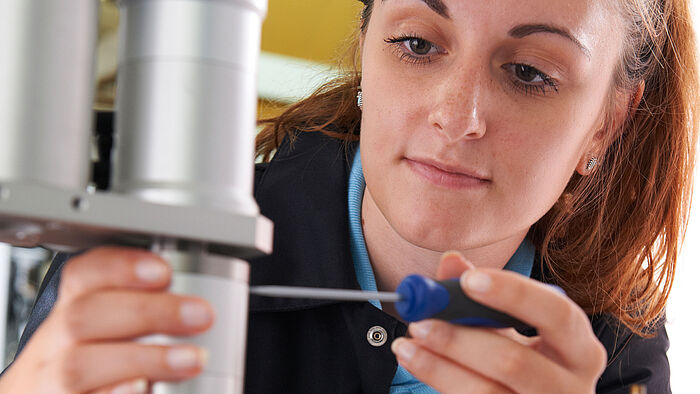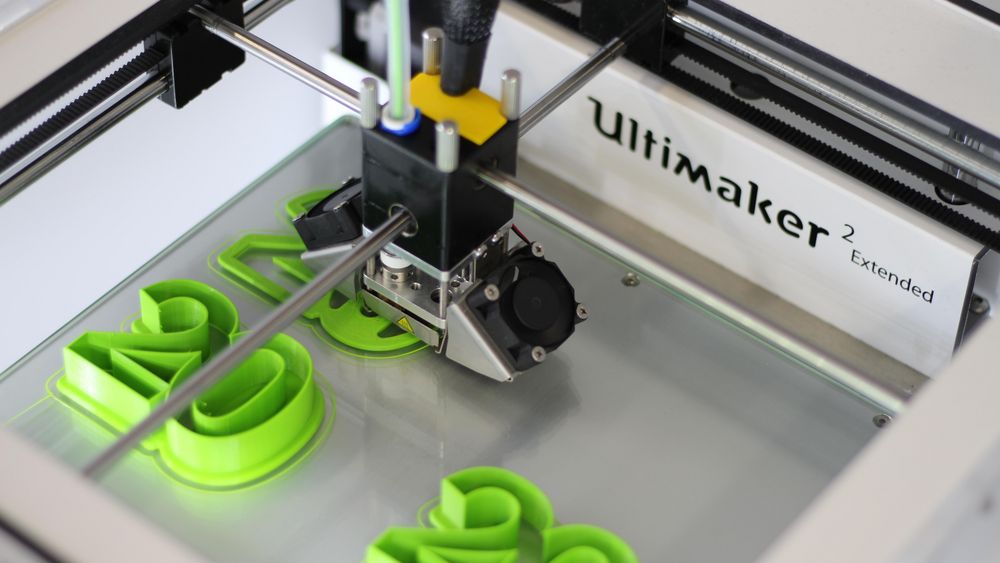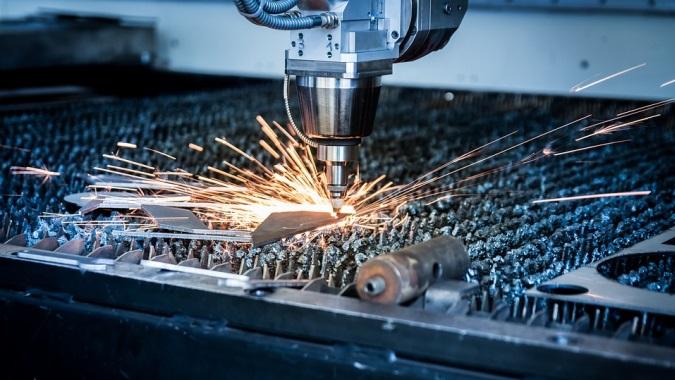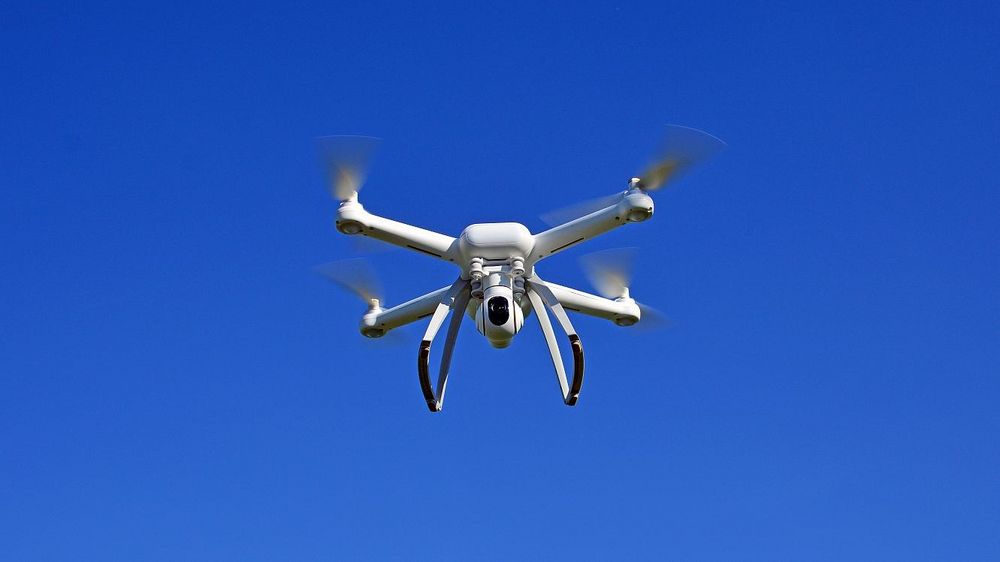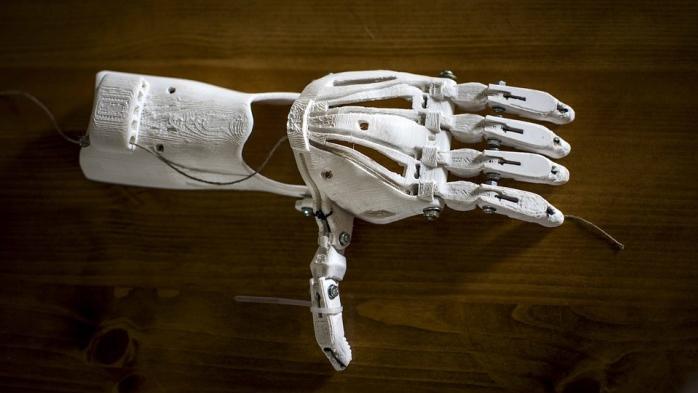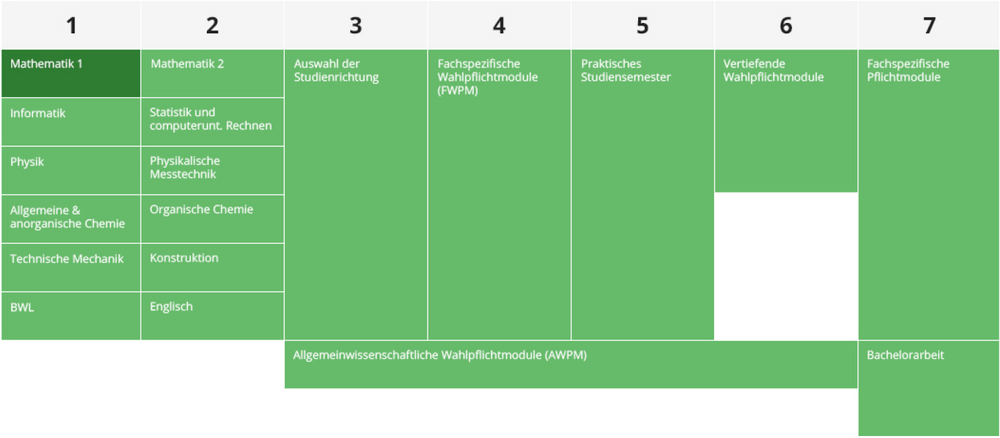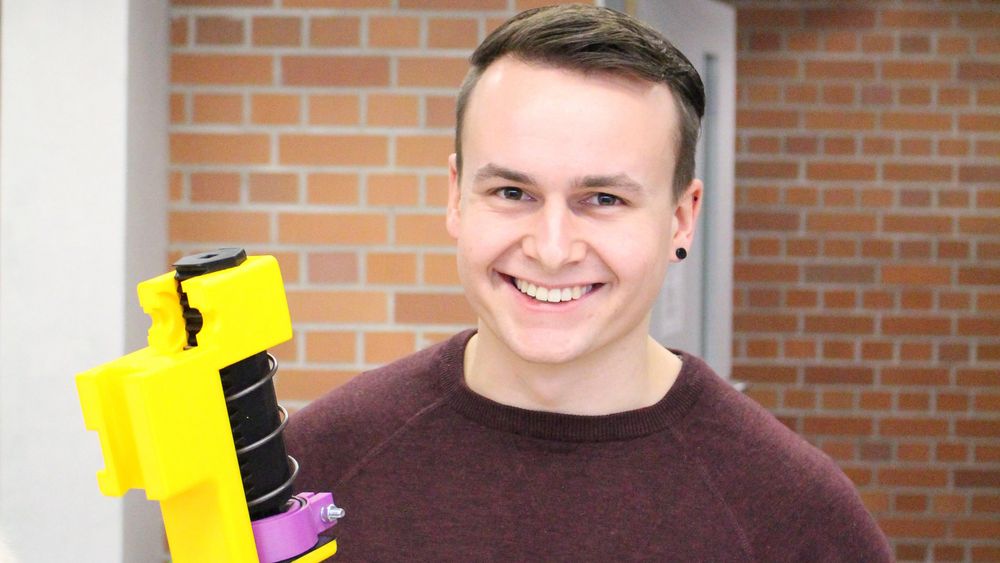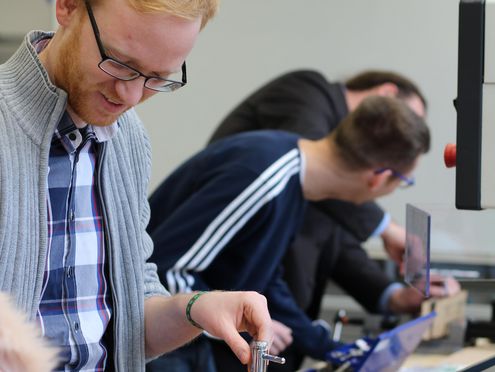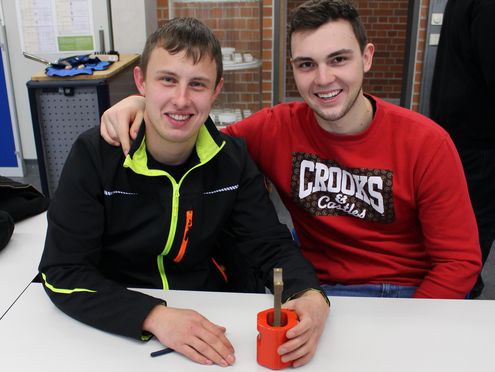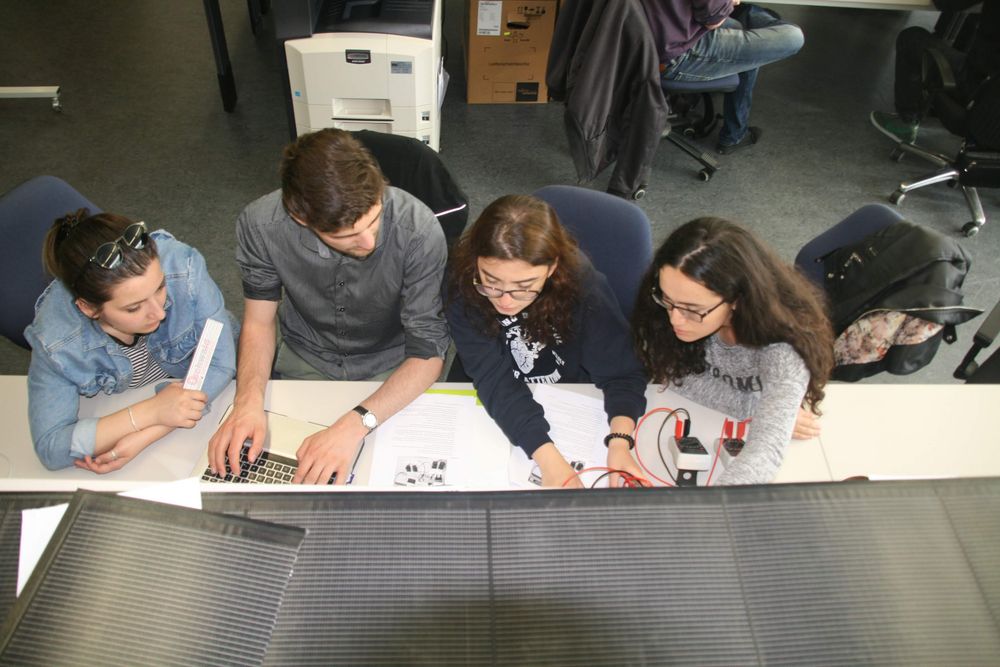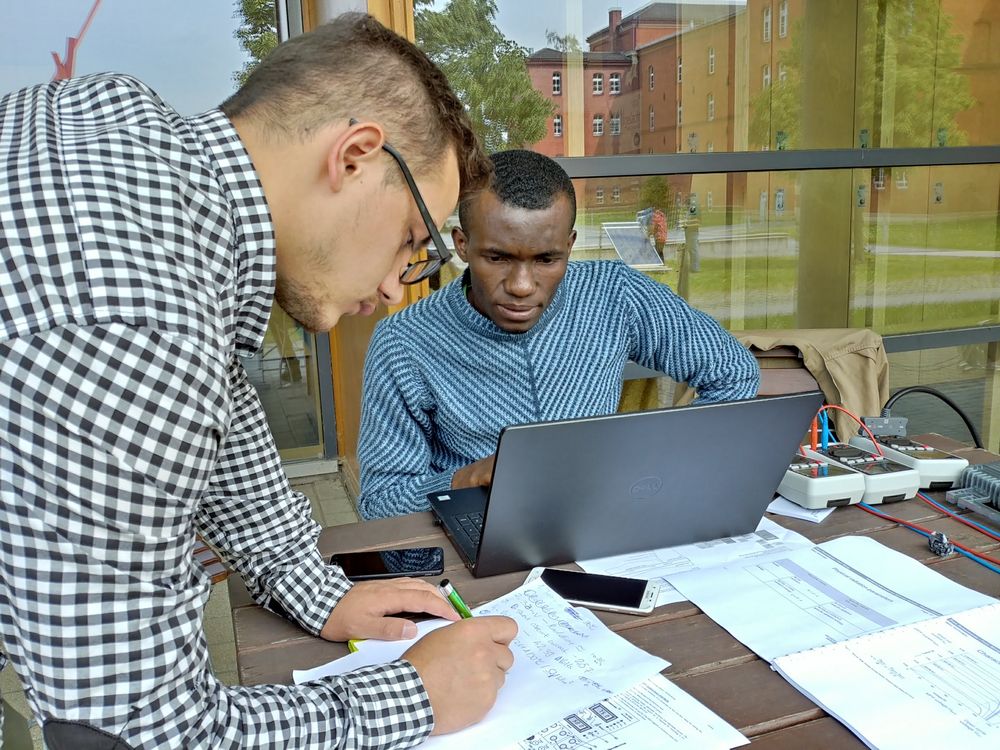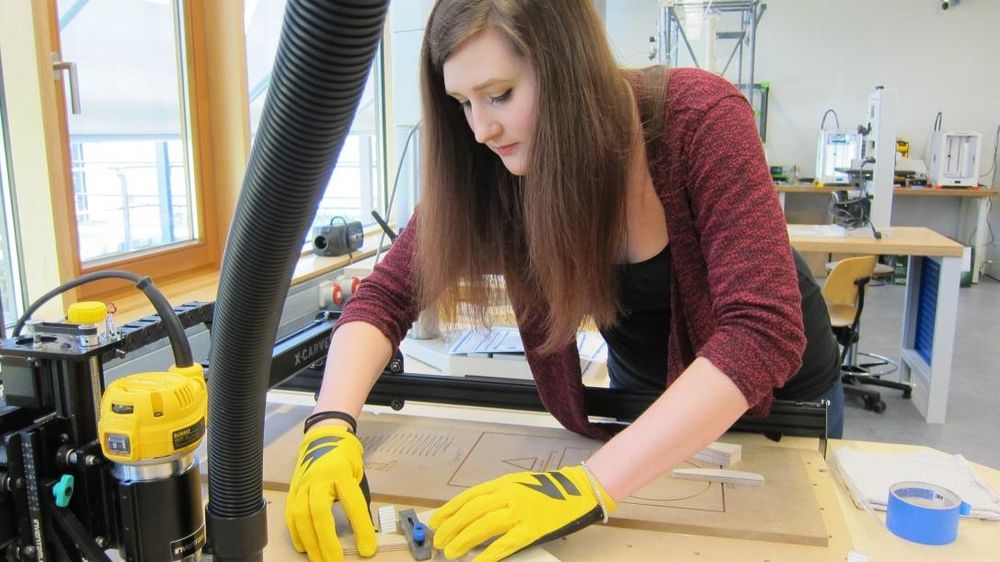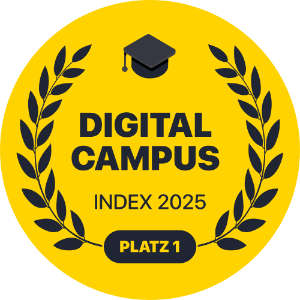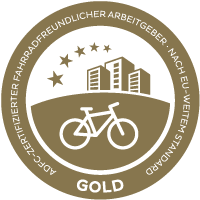Revolutionize the digital production of tomorrow
Production and Plastics Technology
Study Overview
As a Sustainability Engineer in Production and Plastics Technology, you will be responsible for designing and optimizing production processes as well as automating production methods in times of increasingly digitalized manufacturing - keyword: Industry 4.0. The development of new, sustainable products and processes as well as the planning of new production sites and digital factories against the background of outstanding quality at low costs characterize your field of activity. You work with innovative materials for use in lightweight construction, e.g. for energy-saving vehicles or housing applications in communication electronics, or you develop hygienic packaging concepts in the food and pharmaceutical sectors. Polymer materials from fossil or renewable raw materials and their processing into products are becoming increasingly important in almost all areas of life. You develop digital models for optimal processing with modern machines, e.g. for injection molding. The environmentally friendly recycling of plastics is also playing an increasing role.
Short Profile
The Production and Plastics Technology (PKT) major is an offering from the NIW programme. In the first three semesters, students complete the basic studies together. The specialization in PKT takes place at the beginning of the fourth semester. After seven semesters of standard study time, you will graduate with a Bachelor of Engineering degree.
3D printing
"3D printing is probably the most forward-looking manufacturing process. Additive material deposition makes it possible to print even highly complex components from a wide variety of materials (from plastic to titanium) in a very short time. In the future, it will be impossible to imagine successful industrial production without 3D printing."
Industry 4.0
"Digitalization allows networked, automated and highly efficient production facilities. Real-time monitoring monitors and regulates manufacturing processes. In addition, the use of artificial intelligence allows production plants to adapt to changing boundary conditions and thus always produce optimally."
State-of-the-art manufacturing
"State-of-the-art manufacturing systems are the beating heart of any production operation. In particular, high-performance CNC-controlled systems have become an indispensable part of mechanical engineering and are thus at the core of production technology - from NC-controlled milling to high-speed laser cutting."
Mobility and lightweight construction
"Whether on the road, in the air or at sea, modern plastic-based materials are increasingly helping to save energy and thus reduce CO2 emissions.""
Material with a future
Material with a future
"The increased use of modern plastics includes innovative manufacturing concepts, a wide range of applications and efficient recycling."
Communication Electronics
Communication Electronics
"Modern plastics technology forms the basis of digital system networking and communication technologies."
Study Structure
Study Content PKT
If you are majoring in Production and Plastics Engineering, you will learn about the most significant aspects of industrial production. Thus, the use of modern 3D printers in development and production is part of your design training. In addition, you will learn how to use micro-controllers as well as modern manufacturing technologies (such as CNC machines and laser systems) and can use this for the design, control and regulation of industrial robots as well as for the automation of manufacturing and assembly systems. Organizational aspects are also the subject of your training. For example, successful production goes hand in hand with sound production planning and logistics as well as consistent project management. The quality of the manufactured products is also the focus of your studies in the context of quality management.
Application and Start of Study
Are you interested? Then apply here for our Sustainable Engineering degree programme (NIW).
During the online application, you can already specify a desired field of study - don't worry, your choice isn’t definitive. You will make your final decision for the area of study at the end of the second semester. Thus, the first two semesters offer you enough time to get oriented as well as to discover the fields of study that are interesting for you.
The application period is from May 2nd to September 30th. The studies start in the winter semester on October 1st.
If you have any questions, please contact the Student Services.
studierendenservice.niw@hs-ansbach.de
Notes for Transfer Students
Transfer students can enter a higher subject semester. This is possible for the winter semester as well as for the summer semester. Previous achievements that have a subject related equivalent in the Applied Engineering Science Programme can be recognized. To do so, compare the module handbook of your previous degree programme with that of the Applied Engineering Sciences Programme. If you have subjects from higher semesters recognized, you will determine your field of study at the same time. Invest the time to read the module manuals, because it is your achievements that you can have recognized for your new degree programme! Please note the general information for transfer students.
Continuing with graduate studies
Ansbach University of Applied Sciences offers you various master's degree programmes that you can take following your bachelor's degree:
Further information
© 2026 Hochschule Ansbach
